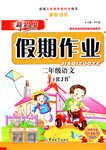题目内容
As a physician who travels quite a lot, I spend a lot of time on planes listening for that dreaded “Is there a doctor on board?” announcement. I’ve been 16 only once — for a woman who had merely fainted. But the 17 made me quite curious about how 18 this kind of thing happens. I wondered what I would do if 19 with a real midair medical emergency — without access 20 a hospital staff and the usual emergency equipment. So 21 the New England Journal of Medicine last week 22 a study about in-flight medical events, I read it 23 interest.
The study estimated that there are a(n) 24 of 30 in-flight medical emergencies on U.S. flights every day. Most of them are not 25 ; fainting and dizziness are the most frequent complaints. 26 13% of them — roughly four a day — are serious enough to 27 a pilot to change course. The most common of the serious emergencies 28 heart trouble, strokes, and difficulty breathing.
Let’s face it: plane rides are 29 . For starters, cabin pressures at high altitudes are set at roughly 30 they would be if you lived at 5,000 to 8,000 feet above sea level. Most people can tolerate these pressures pretty 31 , but passengers with heart disease 32 experience chest pains as a result of the reduced amount of oxygen flowing through their blood. 33 common in-flight problem is deep venous thrombosis — the so-called economy class syndrome (综合症). 34 happens, don’t panic. Things are getting better on the in-flight-emergency front. Thanks to more recent legislation (立法), flights with at 35 one attendant are starting to install emergency medical kits to treat heart attacks.
| 【小题1】 |
|
| 【小题2】 |
|
| 【小题3】 |
|
| 【小题4】 |
|
| 【小题5】 |
|
| 【小题6】 |
|
| 【小题7】 |
|
| 【小题8】 |
|
| 【小题9】 |
|
| 【小题10】 |
|
| 【小题11】 |
|
| 【小题12】 |
|
| 【小题13】 |
|
| 【小题14】 |
|
| 【小题15】 |
|
| 【小题16】 |
|
| 【小题17】 |
|
| 【小题18】 |
|
| 【小题19】 |
|
| 【小题20】 |
|
【小题1】A
【小题2】A
【小题3】D
【小题4】A
【小题5】B
【小题6】C
【小题7】D
【小题8】C
【小题9】B
【小题10】D
【小题11】C
【小题12】A
【小题13】A
【小题14】D
【小题15】B
【小题16】C
【小题17】B
【小题18】D
【小题19】A
【小题20】C
解析试题分析:
【小题1】call有召唤、召集之意。在飞机上有人生病了,就要call a doctor。其他几个选项,address指“称呼某人”,inform是“告诉”的意思,而survey则指“调查”,都不符合文意。选A
【小题2】此题考查词汇和上下文理解。飞机上有人突然晕倒是一件突发事件,即事故,所以,此题选择accident。incident指“事件”,disaster指“灾难”,用在这里,言过其实。选A
【小题3】此题考查上下文理解。这种事情发生的频率到底有多高呢?作者感到很好奇。四个选项中,只有how often连起来表示频率。故选D。
【小题4】此题考查词汇和上下文理解。经观察,四个选项都加了“ed”表示被动语态。A、B、C、D选项的意思分别是“面对”、“对待”、“识别”、“假设”。作者由文章开头的小事故联想到如果真在半空中遇到严重的医疗事故,那自己将怎样面对。根据文意,此处应选confronted。选A
【小题5】此处考查词组的固定搭配access to——“有权使用、接近”。作者想知道在没有医院医护人员和紧急医疗设备的情况下如何应对突发医疗事故。选B
【小题6】此题考查上下文连接。文意表达的是:“当上周的医疗周刊登出了关于机上医疗事件的研究时,我怀着巨大的兴趣去读了。”所以,这里选when。选C
【小题7】参照上文,“周刊”最可能发出的动作应该是“出版”。故选published。选D
【小题8】本题要表达“带着兴趣”,伴随用with。选C
【小题9】此处考查上下文理解。作者查出了美国平均每天机上突发医疗事件的次数,而数据统计一般都会用平均数字来说明问题。所以,这里选average。其他选项,a sum of、an amount of、a number of分别表示“一笔”、“一些”(后加不可数名词)、“一些”(后加可数名词)。选B
【小题10】病痛严重与否用serious表达。所以,这里选serious。D
【小题11】此处答案需从后文查找。能使飞行员改变航道的病与轻微的晕厥进行对比,所以这里的连词是but。选C
【小题12】此处重点考查词汇的细微区别。inspire(鼓舞)和encourage(鼓励)显然不符合要求;require(要求)常用于按照规定、惯例、环境等提出的要求去做某某人做某事。根据原文的意思,机上有重病患者,这种情况要求飞行员改变航向,挽救生命。选A
【小题13】作者在此处举例说明了什么病是严重的突发病。这里的空缺结合选项可知,表达“包括”的概念。contain指“容纳、包含”,只有include最符合题意。选A
【小题14】此题考查上下文理解。四个选项意思是:enjoyable(轻松愉快的)、stimulating(刺激的)、tedious(乏味的)、stressful(压力大的)。从下文可知,飞机要飞到海拔5000-000英尺,这个过程并不是轻松愉快的,既能引发病痛,也绝不是乏味的这样简单,所以,这里要选择stressful。选D
【小题15】此处考查疑问代词。原文意思为:“对于初乘航班者,高空里机舱压力相当于生活在海拔5000-000英尺高度的气压。”what 指代 pressures,故选B。
【小题16】此题考查上下文理解和词汇。从下文可知,此处与有心脏病的乘客乘坐飞机进行对比。意即,大多数健康的人能轻松应付。选择easily。选C
【小题17】参照上文。由于此文是一个客观描述,所以,心脏病患者乘客在缺氧情况下应该“可以/可能感到胸痛”。选may。选B
【小题18】前文中提到chest pains,所以这里应该用另外一种(another),故选D。
【小题19】选A——无论发生什么。
【小题20】此题考查固定搭配at least。至少,选C
考点:考查夹叙夹议类完型
点评:本文讲述了作者由文章开头的小事故联想到如果真在半空中遇到严重的医疗事故,那自己将怎样面对。从而引发的思考。从选项中可以看出,本大题主要还是考查了词汇的辨析与运用,但更加注重综合语言能力的运用,需要根据故事情节,了解词汇用法的同时,结合语境,做出准确的判断。

 新思维寒假作业系列答案
新思维寒假作业系列答案